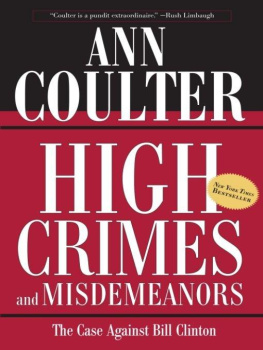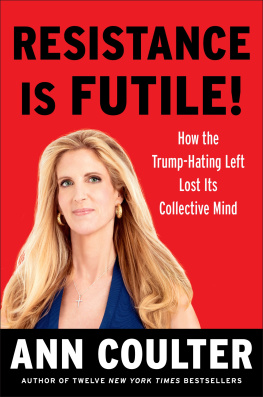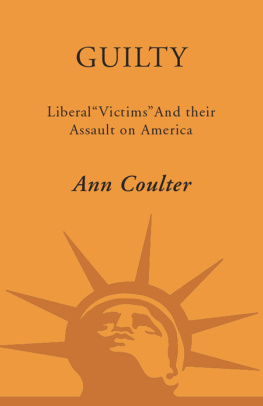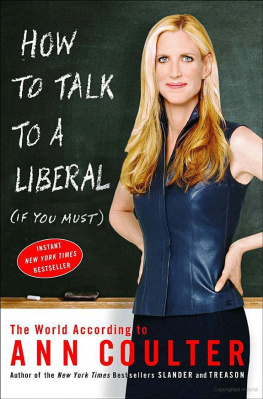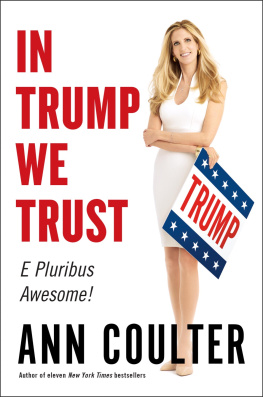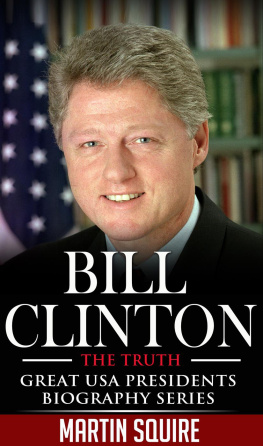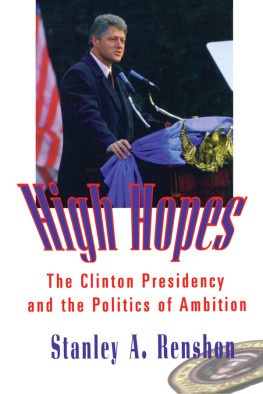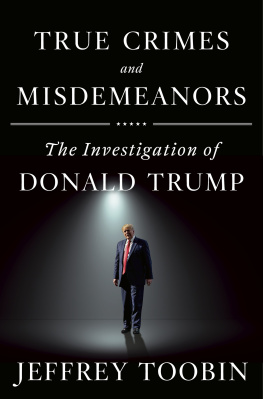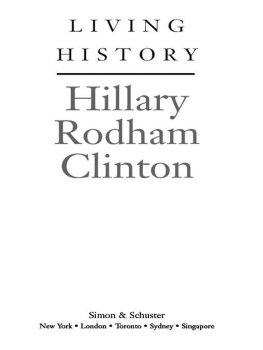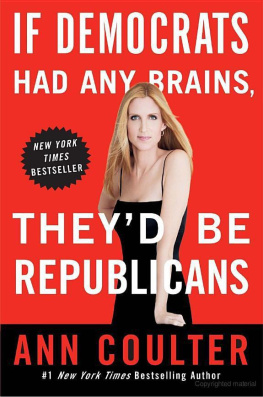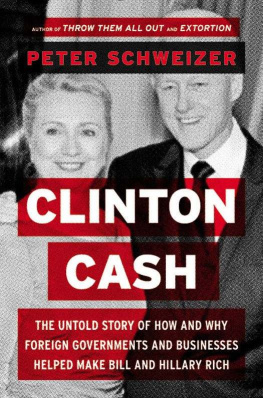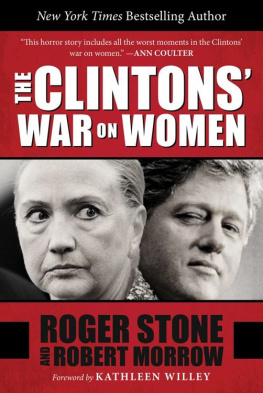Table of Contents
FOR MY PARENTS,
who see virtues in the British system.
The President, Vice President, and all civil Officers of the Unites States, shall be removed from Office on Impeachment for, and Conviction of, Treason, Bribery, or other high Crimes and Misdemeanors.
United States Constitution, Article II, section 4
Chapter One
Just Do It
Compared to the long hours and amazingly tedious work of practicing law, political punditry has much to recommend it. In only one respect does practicing law compare favorably with practicing punditry, but it is an important one. In the law, there are standards, rules, and precedents that must be adhered to by everyonetrial judges, opposing counsel, jurors, appellate courts, even, in theory, the Supreme Court. The first principle of law is that like cases are supposed to be treated alike.
Political commentary is completely different. Like cases are treated unalike with such alacrity as to make the head spin. No general principles can ever be adduced. If a pundit opines that there is no constitutional basis for President Bill Clintons claimed immunity from civil suit, that is assumed to be a political preference, rather than an attempted interpretation of the law and half the time it is. Pundits left and right switch sides with barely a blush, depending on whose president is being gored.
Nevertheless, there are standards and precedents and rules about the conduct of public men, presidents in particular. It cannot be the case, for example, that President Richard Nixon shredded the Constitution for inquiring about having the Internal Revenue Service (IRS) audit his political enemies (request declined), but that President Bill Clinton is an innocent victim ofin his wifes wordsa vast right-wing conspiracy when he succeeds in having the IRS audit his political enemies. The evidence for either claim may be disputedto a pointbut the answer to whether politically motivated IRS audits are right or wrong should not depend on who the president is, or who the enemies are.
There are even standards for evaluating the evidence of such misconduct. And these standards, too, must be applied evenhandedly if the rule of law is to survive. It cannot be the case, for instance, that, when a Republican president stands accused, he is to be held accountable for the actions of his subordinates, even in the absence of proof that he directly ordered those actions, and that a Democratic president is assumed to be innocent, no matter what the evidence, unless we catch him with a smoking gun in his hand. On videotape.
With each new revelation about President Clintons apparently corrupt and sometimes illegal behavior, paid and unpaid Friends of Bill (FOBs) take up the public relations gauntlet to announce that previously abhorred conduct is now considered wholly excusable conduct. In the end the party would announce that two and two made five, and you would have to believe it. [T]he logic of their position demanded it. The heresy of heresies was common sense.
The only coherent epistemology at the moment is that once Clinton is caught doing it, its okay. At this rate, the entire country will soon be molesting interns, lying under oath, buying witnesses, flashing subordinates, and rifling through confidential FBI files. The only thing American citizens must never, ever do is tape a friendeven to expose government corruption. Free John Gotti! And those Floridians who secretly taped Newt Gingrich go to prison for life.
Everyone is entitled to his own opinion; everyone is not entitled to his own facts. Precedents, like Watergate, are facts. If a presidents cutting corners or hoarding dirty little secrets is enough to impeach him, as Nixons attorney general, Elliot Richardson, said, because honesty is the best politics, then a presidents bald-faced lies under oath in a citizens constitutional case against him have to be enough. If it is wrong to talk about pornographic movies to female subordinates, it is wrong to drop your pants and say kiss it to female subordinates. If the womans statement plus one corroborating witness was enough evidence yesterday, its enough evidence today. Although, ultimately, one might have a preference for one rule or another, at least we should all know what the rules are.
There are pretty clear rules and standards for what constitutes a high Crime and Misdemeanor, or an impeachable act. Certain types of conduct have been accepted as valid grounds for impeachment throughout American history, and under the British constitutional precedents the Founding Fathers had in mind when they wrote the impeachment clauses of the Constitution. The grounds, and even more important, the purposes of impeachment, reach back with remarkable consistency more than six hundred years.
VICTIM OR THE CRIME
When the framers of the Constitution chose the phrase high Crimes and Misdemeanors to complement treason and bribery as grounds for impeachment, they adopted a unique phrase used for centuries in English parliamentary impeachments, for the meaning of which one must look to history.
That statement comes from the report assembled by Representative Peter Rodinos House Judiciary Committee, which framed the Articles of Impeachment against Richard Nixon. The so-called Rodino Report, entitled Constitutional Grounds for Presidential Impeachment, was the work of, among others, Bernard Nussbaum, who would serve as President Clintons first White House counsel, and Hillary Rodham, who would serve as first lady to President Clintonthe next president for whom impeachable offenses would be an issue.
Heres some history:
In 1666 Viscount John Mordaunt was charged with impeachment for the high crime and misdemeanor of making uncivil addresses to a woman.
In 1680 Sir William Scroggs, lord chief justice of the court of the Kings Bench, was impeached on account of his frequent and notorious excesses and debaucheries bringing the highest scandal on the public justice of the kingdom.
In 1701 Edward, Earl of Oxford, a member of the kings council, was impeached for procuring an office for someone known to be a person of ill fame and reputation.
In 1881 the Minnesota legislature impeached Judge E. St. J. Cox for frequenting bawdy houses and consorting with harlots.
Quite noticeably, all but presumably the last of these are not crimeseven misdemeanorsunder the criminal law.
Though it will come as a shock to people who acquire their legal knowledge from TV pundits, the phrase high Crimes and Misdemeanors has nothing to do with criminal law. The somewhat startling proposition that high crimes and misdemeanors need not be crimes at all is, nonetheless, an indisputable fact demonstrated by the great preponderance of authority.
In fact, there is no such thing as a high Crime and Misdemeanor in the criminal law. Just as a sea lion is something completely different from a lion, and a mongoose completely different from a goose, the high Crimes and Misdemeanors mentioned in the Constitution are completely different from crimes and misdemeanors. Attaching high to crimes and misdemeanors creates an entirely different animal. And, as Rodham and Nussbaum once explained to the nation, the framers knew that.
Impeachment is not a criminal procedure; the acts that justify impeachment are not necessarily criminal acts; and the purpose of impeachment is not punishment.
Indeed, impeachment is not directed exclusively or even primarily at violations of criminal law: Supreme Court Justice Joseph Story in his great Commentaries on the Constitution was especially eloquent on this point. Not only crimes of a strictly legal character are impeachable offenses, but also political offenses, growing out of personal misconduct so various that they must be examined upon very broad and comprehensive principles of public policy and duty.

